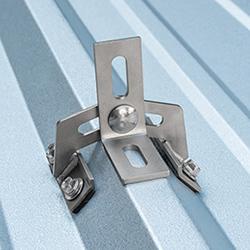PVinsights: Solar tumbles into a bear market
Solar panel prices move notably lower this week, extending the downward trend over the past few weeks. Record capacity expansion, historical low bidding prices and an oversupply situation are intensifying a worldwide competition, which in turn are fueling solar panel price drop. In the US, competition among major module suppliers is getting even more intense as major suppliers strive to secure more orders as to maintain high utilization rates and market shares. Other major solar markets also suffer from similar pattern. In China, even as the demand is relatively solid, solar panel prices are dragged down by depreciation of RMB as well as strategic pricing in efforts to win project tenders. As for India, solar panel prices slump as following the downtrend of the rest of the world regardless of its solid demand growth.
Despite good order visibilities, both multi-crystalline and mono-crystalline cell prices remain pressured by weakening solar panel prices. As newly ramped-up capacity gradually come on stream to boost the supply of solar cells. The demand for solar cell does not seem to improve further recently. The steady demand, with the increasing production output, has led the prices soften continuously. Moreover, as the year-end approaches, solar cell makers are becoming more aggressive to meet their annual sales targets. Meanwhile, the price of mono-crystalline solar cells extends the drop this week, following the downtrend with module and multi-crystalline cells. Although the demand of mono-crystalline remains solid, the affordability for elevated mono-crystalline cell buyers has reduced, since the weakening module prices have hampered the purchasing power of buyers. Furthermore, with advent of holiday season, thinning trading in EU and US for higher efficiency mono PERC cells has forced solar cell makers to offer competitive prices to win orders from Chinese module makers. Moreover, with the RMB depreciation, solar cell in China has dropped in dollar term, even as there is no significant price drop in RMB term. As the result, despite the solid demand of solar cells, the enlarged price corrections are witnessed as buyers are having less purchasing power and increasing supply has further deteriorated the prices.
Multi-crystalline wafer prices remain vulnerable to a correction, because of the sliding downstream prices. As leading multi-crystalline wafer makers officially lowered price quotes for December, the 2nd tier suppliers are forced to follow and even provide more competitive prices. The prices of multi-crystalline wafer in overseas even drop consecutively, following the price adaption in China. On the other hand, mono-crystalline wafer prices remain immobile as tight supply lingers. With the downstream mono-crystalline cell production ramping up, the demand of mono-crystalline wafer remains robust. Yet, the supply of mono-crystalline wafer currently is unable to digest the incoming demand immediately due to limited number of major suppliers. Hence, mono-crystalline wafer prices remain stable in RMB term this week amid tight supply, but slightly dropped as translated in USD term.
Intriguingly, polysilicon price increases this week, halting a 4-week plateau, as the effects Chinese officials intensified their rhetoric to restrain the Korean polysilicon imports after China intensifies economic retaliation against Korea. The mounting speculation of tighter polysilicon supply in China enable Chinese polysilicon makers to push up prices successfully this week, even as the AD review case against Korean polysilicon suppliers is still in the investigation stage. However, since some stock pressures and liquidity needs still hang over some Korean and German polysilicon suppliers, some polysilicon dumping is still taking place out of China before the end of year 2016. The drop of overseas polysilicon prices has offset some of the gains of Chinese polysilicon prices, leading the overall polysilicon price increase more mildly than that in China this week.
Featured Product

